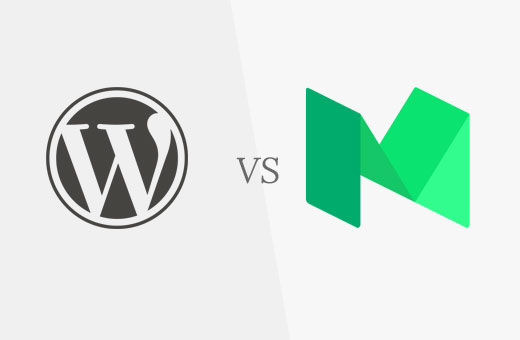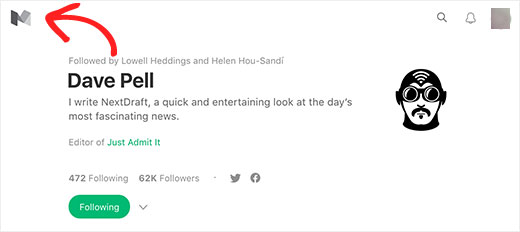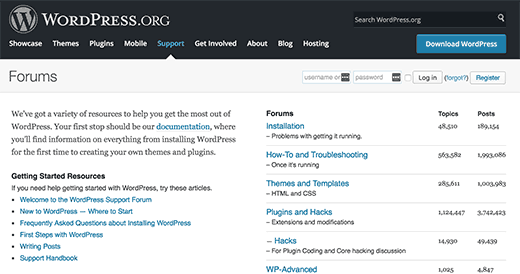We are often asked by users why they should use WordPress instead of other free blogging services like Blogger, Ghost, Tumblr, etc? Medium is a fast growing free blogging platform that allows anyone to create stories and have their own personal space on the web. In this article, we will compare WordPress vs Medium with the pros and cons of each platforms.

Important: Please note that this comparison is between self-hosted WordPress.org sites and Medium, not WordPress.com vs Medium.
1. Ownership of Your Content
Medium is a free online community where anyone can share their stories. It is easy to use, reliable, and has built-in social networking features.
However, you do not own Medium. It is owned by ‘A Medium Corporation’, and they can decide to shut it down, announce new pricing plans, or cancel your account at anytime.
On the other hand, WordPress allows you to own your own content. Since you host your own website, you have full control over your data and who you share it with.
2. Growing into Your Own Brand

When you are using Medium, you are promoting their brand along with your stories. You don’t get paid for that. If you are not a famous author, chances are that Medium users would remember reading a story on Medium without even remembering your name.
Medium is also a network which means content from other authors often get displayed as next stories below your own story. Taking your users away to read articles by other brands and authors.
On WordPress, you have full control on how you want to promote your brand. As your site grows in popularity, you alone decide how to capitalize on your content and brand recognition. Your content and ideas are recognized by your name alone.
Since you have full control of your WordPress site, you can do a lot more to increase the time users spend on your site.
3. Design Possibilities
Medium allows you to choose a layout for your publication. You add your own logo, background color, or image to the header. For layout you can choose grid or stream based layout. This drag and drop editor is very easy to use and offers multiple customization options.
However, still your publications appearance is limited to the choices available in Medium. You cannot choose your own design and layout for your website.
On the other hand, there are thousands of free and paid WordPress themes available. These themes are designed by professionals with innovative designs and unlimited customization options.

WordPress gives you the flexibility to build a site that looks uniquely yours. If you can spend a little more, then you can hire designers and developers to create any kind of website imaginable.
4. Freedom to Move

Medium allows you to export your data in HTML format. This makes it difficult to export your data into other platforms like WordPress. Responses and likes on your articles cannot be exported.
Setting up redirects from Medium to WordPress is nearly impossible. Even if you are using a custom domain on Medium, you will still have to manually setup a redirect for each story on your new platform.
As an open source platform, WordPress gives you freedom to move all your content. You can import/export your data from WordPress using importer plugins.
You can also import/export users and comments. WordPress also comes with amazing backup plugins that allow you to restore and migrate your site to a new host or even a new domain name.
5. Support Options
Medium comes with extensive documentation and a ticket based support system. Currently, support is free for all users. Answers are provided by Medium staff and their response time depends on the number of support requests they have in pending.
WordPress is a community driven project. It powers more than 26% of all websites on the internet. Free community support is available through WordPress.org website. (See: why is WordPress free?)

Apart from that, you will find WordPress support on countless third-party platforms like StackExchange, YouTube, SitePoint, etc. See our guide on how to properly ask for WordPress support and get it.

Recent Comments